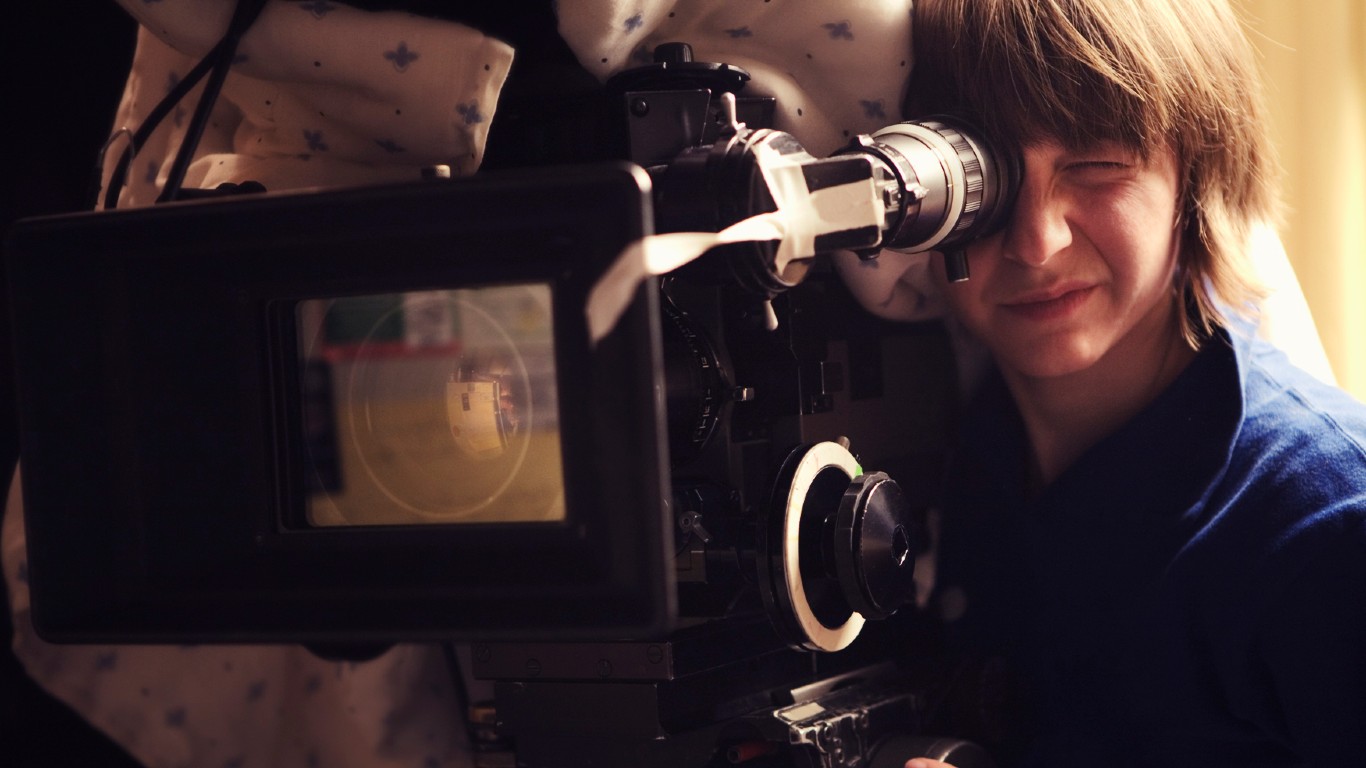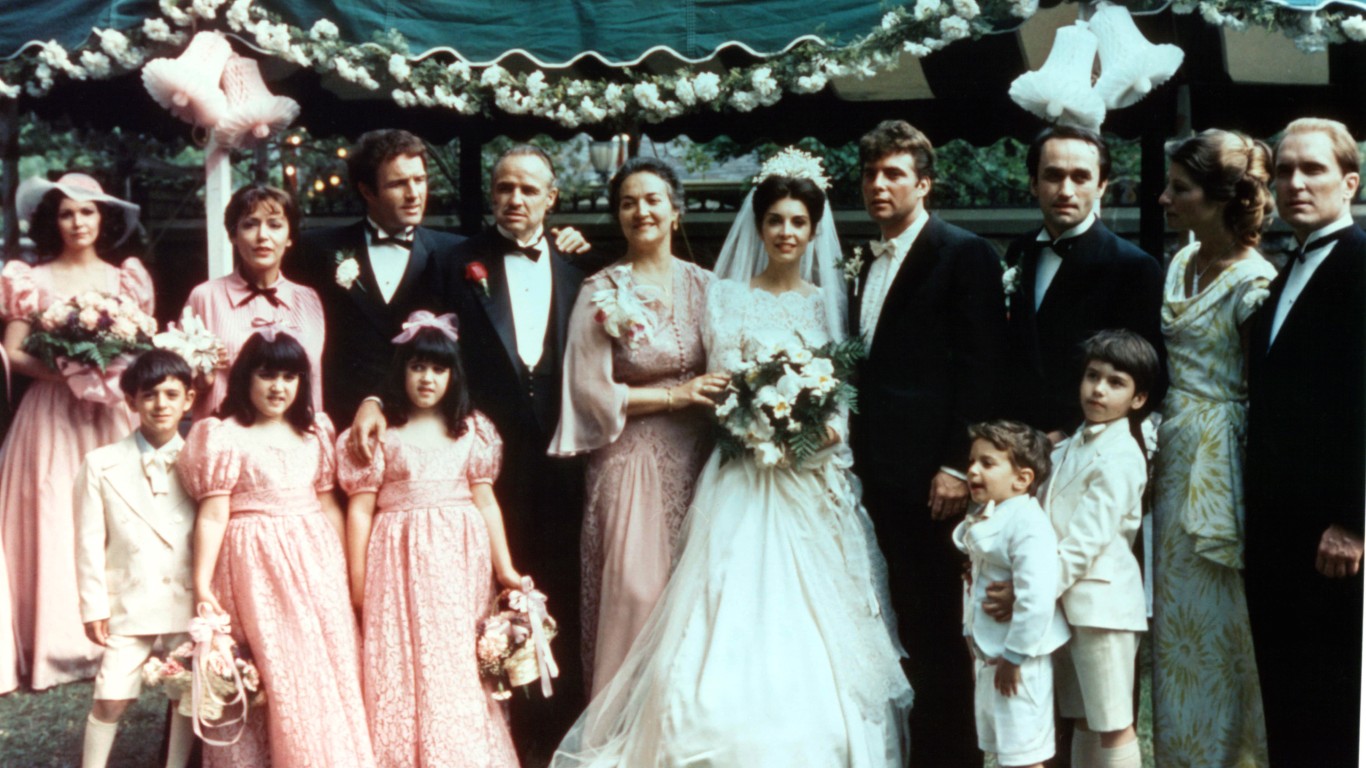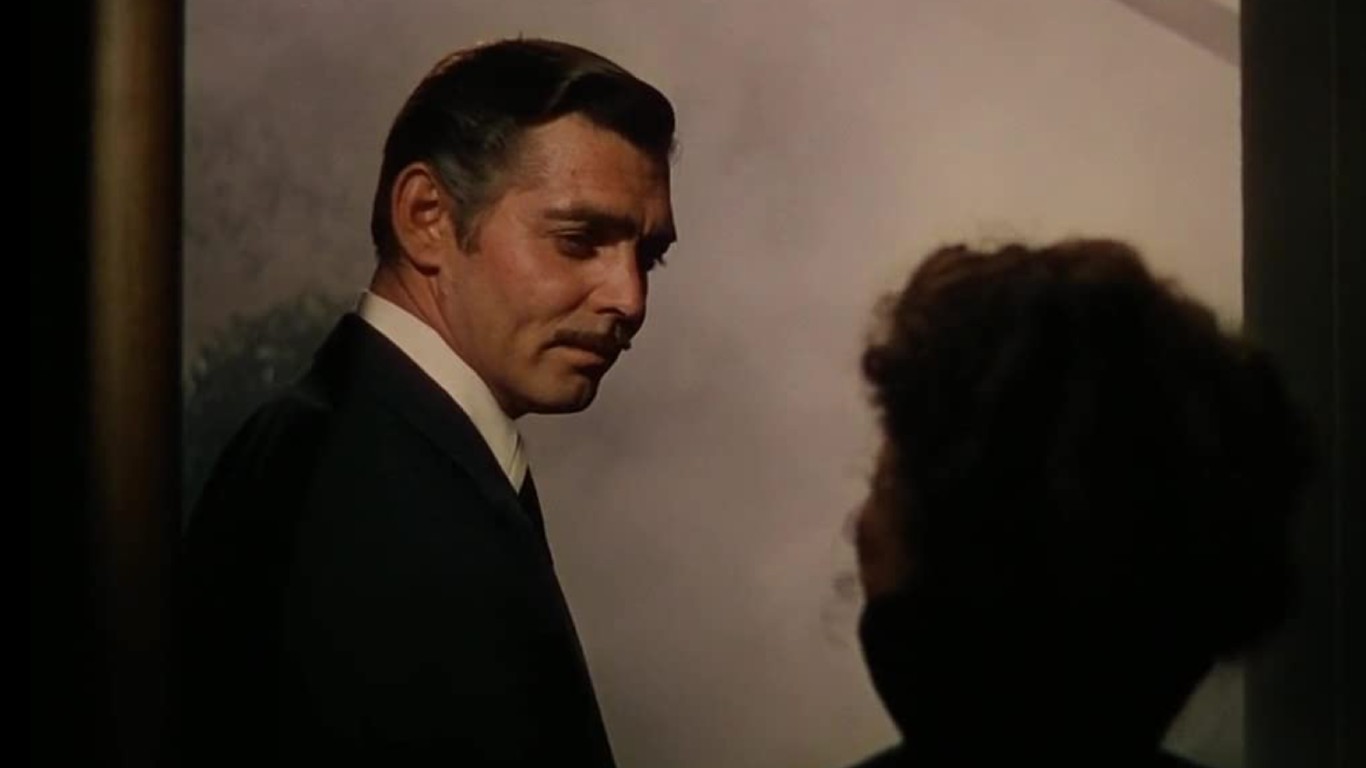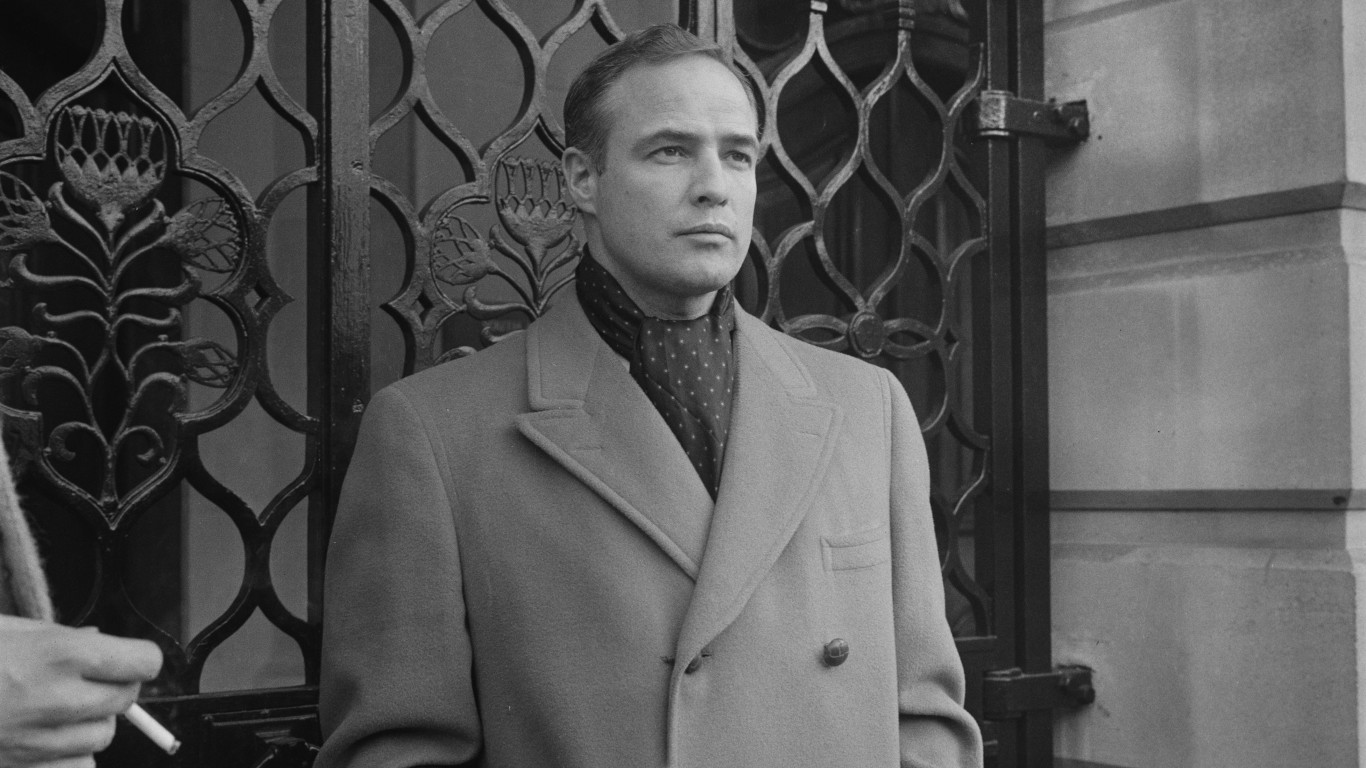The history of cinema offers no shortage of iconic oratoy, often delivered by world-famous actors. A fixture of sports biopics and courtroom dramas, among other genres, classic speeches also appear in beloved films such as “Dead Poet’s Society” and “The Great Dictator.” In these cases and more, the words can take on a life of their own outside the story and cultivate an enduring relevance across generations. (These are the 30 most inspirational movies of the )last 100 years.)
A well-executed monologue or speech can also help bring the movie’s themes into focus. Take Spencer Tracy’s trial speech in “Inherit the Wind,” for example, which calls out the toxic nature of wicked laws. His words might be in direct reference to the case at hand, but they also play into the story’s thematic exploration of harmful ideologies or practices at large.
Click here to read about the most moving speeches ever delivered in a movie
24/7 Tempo has used editorial discretion to compile a list of some of the greatest speeches in movies, using sources such as IMDb, an online movie and TV database owned by Amazon, and YouTube. In making our choices, we included examples covering a diverse set of topics, from sports to politics to the fight for justice. We did not include those that were taken verbatim, in whole or in part, from real-life speeches – for instance, George C. Scott’s opening oration as the title character in “Patton,” which included portions of real speeches given by the American general. (These are the greatest wartime speeches in history.)

Mr. Smith Goes to Washington (1939)
> What the speech is about: The causes worth fighting for
> Delivered by: Jefferson Smith, played by James Stewart
An unlikely politician (Stewart) goes to Washington and mounts a 25-hour filibuster in this moving dramedy from director Frank Capra. The famous speech is a plea for integrity and compassion and also a last-ditch attempt to avoid his own expulsion from the Senate.
[in-text-ad]

The Great Dictator (1940)
> What the speech is about: The need for kindness, gentleness, and universal brotherhood
> Delivered by: The Barber (dressed as Adenoid Hynkel), played by Charlie Chaplin
Masquerading as his Hitler-esque lookalike, a Jewish barber delivers one of the most iconic monologues in movie history. The speech opens with the dictator’s resignation from power and builds toward these closing lines: “Let us fight for a world of reason, a world where science and progress will lead to all men’s happiness. Let us unite!”

Henry V (1944)
> What the speech is about: Rallying English forces against the French
> Delivered by: King Henry V, played by Laurence Olivier
This Technicolor adaptation of a Shakespearean drama remains faithful to the source material in its delivery of the rousing “St Crispin’s Day” speech. King Henry’s galvanizing words help unify his troops before the Battle of Agincourt, in which the English army squared off against a much larger French opponent and day.

Inherit the Wind (1960)
> What the speech is about: Critiquing a “wicked” law
> Delivered by: Col. Drummond, played by Spencer Tracy
Lawyer Henry Drummond defends the right to teach evolution in this legal drama, which drew upon the real-life Scopes “monkey trial” in Tennessee in 1925. He argues before the court that a “wicked law, like cholera, destroys everyone it touches.” At the heart of his speech is the idea that one corrupt law can lead to others and ultimately take society itself past a point of no return.
[in-text-ad-2]

Judgment at Nuremberg (1961)
> What the speech is about: A German judge tells truth about the Nazi regime
> Delivered by: Ernest Janning, played by Burt Lancaster
Long before Jack Nicholson in “A Few Good Men” there came this acclaimed courtroom drama and its revealing speech by ex-Nazi judge Ernest Janning. On trial for crimes against humanity, Janning dramatically confesses to his previous knowledge of concentration camps and other heinous misdeeds. The story is inspired by actual events.

To Kill a Mockingbird (1962)
> What the speech is about: Believing Tom Robinson
> Delivered by: Atticus Finch, played by Gregory Peck
Southern Black man Tom Robinson stands falsely accused of rape in this Oscar-winning adaptation of Harper Lee’s timeless novel. Defense attorney Atticus Finch draws attention to the country’s moral values and its racial biases alike in his closing argument. “In the name of God, believe Tom Robinson” are his final words.
[in-text-ad]

Guess Who’s Coming to Dinner (1967)
> What the speech is about: How love defies racial prejudice
> Delivered by: Matt Drayton, played by Spencer Tracy
Interracial marriage was still illegal in 17 states when this blockbuster dramedy about that very subject rolled into theaters. With his white daughter engaged to a Black man (Sidney Poitier), Matt Drayton reaches the conclusion that no one should be denied love due to the pigmentation of their skin. At long last, everyone can finally enjoy a peaceful dinner.

Network (1976)
> What the speech is about: A call to action
> Delivered by: Howard Beale, played by Peter Finch
Playwright Aaron Chayefsky penned the screenplay for this blistering satire of corporate media, which contains one of cinema’s most historic monologues. Trying to wake viewers from their proverbial slumber, news anchor Howard Beale famously rants on air, “I want you to get up right now and go to the window, open it, and stick your head out, and yell: ‘I’m as mad as hell, and I’m not going to take this anymore!'”

Norma Rae (1979)
> What the speech is about: A union organizer prepares her children for abusive remarks
Sally Field won an Academy Award for the role as Norma Rae Webster, a character based on real-life labor union organizer Crystal Lee Sutton in this biographical drama. Upon her release from jail for union organizing in her workplace, Norma Rae tells her children her life story and prepares them for a public smear campaign in a pointed speech.
[in-text-ad-2]

Stripes (1981)
> What the speech is about: Rallying his fellow troops
> Delivered by: John Winger, played by Bill Murray
Deadbeat John Winger joins the army on a whim and accidentally kicks off an international crisis in this screwball comedy. Leading into graduation, Winger galvanizes his fellow troops with an erratic motivational speech. Most of it was improvised, according to legend.

The Verdict (1982)
> What the speech is about: People want to be just
> Delivered by: Frank Galvin, played by Paul Newman
Struggling Boston attorney Frank Galvin sues the local Catholic archdiocese for malpractice in this harrowing courtroom drama. What seems like a guaranteed victory becomes far more uncertain as the defense team pulls out all the stops. Galvin’s closing argument takes the form of an earnest speech, which eschews traditional logic by reminding the jury that true justice is in their hearts and hands.
[in-text-ad]

Hoosiers (1986)
> What the speech is about: Playing up to your potential
> Delivered by: Coach Dale, played by Gene Hackman
Coach Dale takes a rural high school basketball team all the way to the state championship in this rousing sports drama. Just before the big game, he delivers a motivational speech on the importance of the fundamentals. He concludes, “If you put your effort and concentration into playing to your potential, to be the best that you can be, I don’t care what the scoreboard says at the end of the game, in my book we’re gonna be winners!”

Dead Poets Society (1989)
> What the speech is about: Seize the day
> Delivered by: John Keating, played by Robin Williams
This Oscar-winning drama features a number of iconic monologues from passionate boarding school teacher John Keating. The most famous among them is a call to action that obliges each of his students to make their lives extraordinary. It anchors around the phrase “carpe diem” – Latin for “seize the day.”

Scent of a Woman (1992)
> What the speech is about: A blind ex-soldier supports a young man at prep school
> Delivered by: Frank Slade, played by Al Pacino
Al Pacino’s outsized performance as the blind Frank Slade (for which he won his only Oscar) injects this famous drama with a slew of classic catchphrases. His finest moment comes toward the end of the film, when he defends his expelled nephew before a prep school disciplinary committee. The speech contains famous lines such as “I’m just getting warmed up” and “I’ll show you outta order!”
[in-text-ad-2]

The Shawshank Redemption (1994)
> What the speech is about: Seeking parole after 40 years
> Delivered by: Red, played by Morgan Freeman
Morgan Freeman’s character is 40 years into a life sentence when he makes his final plea for freedom before a prison parole board. His speech examines the nature of remorse and rehabilitation and concludes on a note of self-defeat. Ironically enough, his parole is approved.

Braveheart (1995)
> What the speech is about: Freedom for Scotland
> Delivered by: William Wallace, played by Mel Gibson
“They may take our lives, but they’ll never take our freedom!” exclaims Scottish rebel William Wallace as he rallies his army against the English. The speech makes up part of the film’s broader thematic exploration of what it means to live a full and meaningful life.
[in-text-ad]

Independence Day (1996)
> What the speech is about: Speech before battling aliens
> Delivered by: President Thomas Whitmore, played by Bill Pullman
A year after the release of “Braveheart,” actor Bill Pullman delivered a similarly inspiring battle speech in this alien invasion blockbuster. It calls for unity across the planet and features the famous line: “We will not go quietly into the night!”

Good Will Hunting (1997)
> What the speech is about: Chiding a young genius for his lack of true life experience
> Delivered by: Sean Maguire, played by Robin Williams
An Oscar-winning performance by Williams combined with an Oscar-winning screenplay by Matt Damon and Ben Affleck makes for one of the most moving speeches of 1990s cinema. Hoping to breach the guarded exterior of a young genius (Damon), therapist Sean Maguire draws upon the differences between educational and real-life experience. “Your move, chief,” he famously says at the end.

Any Given Sunday (1999)
> What the speech is about: Climbing out of hell one inch at a time
> Delivered by: Tony D’Amato, played by Al Pacino
Playing veteran NFL coach Tony D’Amato, actor Al Pacino delivers a motivational speech on the cusp of his final game. It doubles as a moment of self-reflection for the character, who mentions his own struggles and missed opportunities. In “life or football,” every inch counts.
[in-text-ad-2]

Remember the Titans (2000)
> What the speech is about: Urging high school football players to fight for each other
> Delivered by: Coach Boone, played by Denzel Washington
This blockbuster sports drama culls from a real-life story about a racially integrated high school football team. In an effort to bridge the divide, Coach Boone takes them to the site where the Battle of Gettysburg was once fought. “If we don’t come together, right now, on this hallowed ground, we too will be destroyed – just like they were,” he tells the team.

We Were Soldiers (2002)
> What the speech is about: Unity in wartime
> Delivered by: Hal Moore, played by Mel Gibson
This harrowing Vietnam War drama brings characters of various cultural backgrounds together in a single cavalry unit. Leading the troops into battle is Lt. Col. Hal Moore, who promises to leave no man behind. “Dead or alive, we all come home together.”
[in-text-ad]

Miracle (2004)
> What the speech is about: Inspiring the underdog
> Delivered by: Herb Brooks, played by Kurt Russell
“This is your time. Now go out there and take it,” says coach Herb Brooks to the 1980 U.S. men’s Olympic hockey team before they square off against a formidable Russian opponent. The thrilling game that follows is based on an actual event.

V for Vendetta (2005)
> What the speech is about: Revolt against tyranny
> Delivered by: V, played by Hugo Weaving
This sci-fi action movie follows a mysterious character named V as he leads the revolt against a tyrannical British government. He takes over a TV broadcast during a key scene and asks viewers to join him outside the gates of Parliament. “Together,” he says, “we shall give them a fifth of November that shall never, ever, be forgot!”

Rocky Balboa (2006)
> What the speech is about: Not blaming others for failure
> Delivered by: Rocky Balboa, played by Sylvester Stallone
The Rocky franchise is chock full of motivational moments and monologues, including this one from the sixth installment. Speaking to his son, the aging boxer explains that we can only win in life by believing in ourselves.
[in-text-ad-2]

We Are Marshall (2006)
> What the speech is about: Why the team cannot lose
> Delivered by: Jack Lengyel, played by Matthew McConaughey
When a plane crash kills 37 Marshall University football players, Coach Jack Lengyel is tasked with putting the program back together. He takes the new team to the grounds where six dead players are buried and delivers a vital speech before the big game. If the team plays “with every ounce of blood” in their body, he says, then they cannot lose, regardless of the final score.

300 (2007)
> What the speech is about: Freedom for Greece
> Delivered by: Dilios, played by David Wenham
This historical epic follows Leonidas (Gerard Butler) and his outnumbered Spartans as they do battle against a massive Persian army. Their story of bravery inspires the soldier Dilios, who honors them with a speech toward the end of the film. His words double as a rally cry for the new and much larger Spartan army, which soon marches into battle.
Get Ready To Retire (Sponsored)
Start by taking a quick retirement quiz from SmartAsset that will match you with up to 3 financial advisors that serve your area and beyond in 5 minutes, or less.
Each advisor has been vetted by SmartAsset and is held to a fiduciary standard to act in your best interests.
Here’s how it works:
1. Answer SmartAsset advisor match quiz
2. Review your pre-screened matches at your leisure. Check out the advisors’ profiles.
3. Speak with advisors at no cost to you. Have an introductory call on the phone or introduction in person and choose whom to work with in the future
Thank you for reading! Have some feedback for us?
Contact the 24/7 Wall St. editorial team.
 24/7 Wall St.
24/7 Wall St. 24/7 Wall St.
24/7 Wall St.

